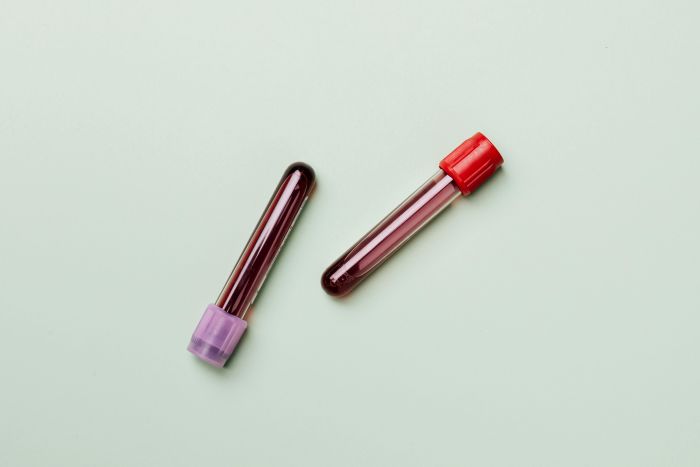Anti-Müllerian Hormone (AMH) is a crucial fertility marker that reveals important information about your ovarian reserve and reproductive potential. Understanding your AMH levels can help you make informed decisions about your fertility journey and treatment options.
What is AMH Hormone and Why Does It Matter?
AMH is a hormone produced by the small follicles in your ovaries. Think of it as a window into your ovarian reserve – the number of eggs you have remaining. Unlike other fertility hormones that fluctuate throughout your menstrual cycle, AMH levels remain relatively stable, making it an excellent indicator of your reproductive potential.
Your AMH levels directly correlate with the number of eggs available for fertilization. Higher levels typically indicate a larger egg reserve, while lower levels suggest fewer remaining eggs. This information becomes particularly valuable when planning IVF treatment or considering egg freezing.
Understanding AMH Test Results
AMH levels are measured in nanograms per milliliter (ng/mL) or picomoles per liter (pmol/L). The interpretation of your results depends on your age and individual circumstances, but general ranges provide helpful guidance.
| AMH Level (ng/mL) | AMH Level (pmol/L) | Interpretation | Fertility Implications |
|---|---|---|---|
| Above 3.0 | Above 21.4 | High | Excellent ovarian reserve, possible PCOS |
| 1.5 - 3.0 | 10.7 - 21.4 | Normal | Good ovarian reserve for age |
| 1.0 - 1.5 | 7.1 - 10.7 | Low Normal | Adequate reserve, may need monitoring |
| 0.5 - 1.0 | 3.6 - 7.1 | Low | Diminished ovarian reserve |
| Below 0.5 | Below 3.6 | Very Low | Severely diminished reserve |
Remember that AMH is just one piece of the fertility puzzle. Your doctor will consider your AMH results alongside other factors like your age, menstrual cycle regularity, and partner's fertility status to create a comprehensive treatment plan.
How AMH Affects Your Fertility Treatment Options
Your AMH levels significantly influence which fertility treatments will be most effective for you. Understanding this connection helps you and your fertility team develop the most appropriate treatment strategy.
High AMH Levels
If you have high AMH levels, you typically respond well to ovarian stimulation medications. However, this also means you're at higher risk for ovarian hyperstimulation syndrome (OHSS) during IVF treatment. Your doctor may recommend:
| Treatment Approach | Benefits | Considerations |
|---|---|---|
| Lower medication doses | Reduces OHSS risk | Requires careful monitoring |
| Antagonist protocol | Better control of stimulation | May need cycle adjustments |
| Freeze-all strategy | Prevents OHSS complications | Delays fresh transfer |
Normal AMH Levels
With normal AMH levels, you have excellent treatment flexibility. Most fertility treatments remain viable options, and you can expect good response to stimulation medications.
Low AMH Levels
Lower AMH levels require more aggressive treatment approaches. Your fertility specialist might recommend starting treatment sooner rather than later, as your ovarian reserve continues to decline over time.
AMH and Age: What You Need to Know
Age remains the most critical factor affecting fertility, but AMH provides additional insight into your individual situation. While AMH naturally declines with age, some women maintain higher levels longer than others.
| Age Range | Average AMH (ng/mL) | Fertility Considerations |
|---|---|---|
| 25-30 | 2.5-4.0 | Peak reproductive years |
| 31-35 | 1.5-3.0 | Gradual decline begins |
| 36-40 | 0.8-2.0 | More rapid decline |
| 41-45 | 0.3-1.0 | Significantly reduced reserve |
According to Dr. Sherman Silber, a renowned reproductive endocrinologist, "AMH testing allows us to individualize treatment protocols and set realistic expectations for patients, regardless of their chronological age" (Silber, 2012).
If you're over 35 with low AMH levels, your doctor might recommend more aggressive treatment approaches or discuss donor egg options to optimize your chances of success.
Factors That Can Affect Your AMH Levels
Several factors beyond age can influence your AMH levels. Understanding these helps you interpret your results more accurately and make informed treatment decisions.
Medical Conditions
| Condition | Effect on AMH | Treatment Implications |
|---|---|---|
| PCOS | Typically elevated | Higher OHSS risk, may need dose adjustments |
| Endometriosis | Often decreased | May require more aggressive stimulation |
| Previous ovarian surgery | Usually decreased | Limited response to medications |
| Autoimmune conditions | Variable effects | Requires individualized approach |
Lifestyle Factors
Your lifestyle choices can also impact AMH levels. Smoking significantly reduces AMH levels, while maintaining a healthy weight and managing stress may help preserve your ovarian reserve.
AMH Testing: When and How Often
AMH testing is typically recommended as part of your initial fertility evaluation. Unlike other hormone tests that require specific cycle timing, AMH can be measured on any day of your menstrual cycle.
You should consider AMH testing if you:
| Situation | Recommended Timing | Purpose |
|---|---|---|
| Planning to delay pregnancy | Before age 30 | Baseline assessment for future planning |
| Trying to conceive over 6 months | As part of fertility workup | Evaluate ovarian reserve |
| Considering egg freezing | Before starting process | Determine optimal timing and approach |
| Before IVF treatment | During initial consultation | Protocol selection and counseling |
Generally, AMH levels don't change rapidly, so annual testing is sufficient unless you're undergoing active treatment or have specific medical conditions that might affect your levels.
Treatment Options Based on AMH Results
Your AMH results help guide treatment selection, but they don't determine your entire fertility journey. Even with low AMH levels, pregnancy remains possible with appropriate treatment.
For Normal to High AMH Levels
You have multiple treatment options available, including intrauterine insemination (IUI) and various IVF protocols. Your doctor can tailor stimulation medications to optimize your response while minimizing risks.
For Low AMH Levels
Treatment focuses on maximizing the potential of your remaining eggs. Options include:
| Treatment Approach | Success Considerations | Timeline |
|---|---|---|
| Aggressive IVF stimulation | May retrieve fewer eggs but quality can be good | Start treatment promptly |
| Mini-IVF protocols | Gentler approach, may need multiple cycles | Flexible timing |
| Natural cycle IVF | Works with your body's natural selection | Requires precise timing |
| Donor egg consideration | Higher success rates | Allows time for decision-making |
Research by Dr. Norbert Gleicher shows that even women with very low AMH levels can achieve pregnancy, though success rates vary significantly based on individual circumstances (Gleicher et al., 2013).
Improving Your Fertility Despite Low AMH
While you cannot significantly increase your AMH levels, you can optimize your overall fertility potential through various approaches.
Lifestyle Modifications
Focus on lifestyle factors that support fertility:
| Area | Recommendations | Expected Benefits |
|---|---|---|
| Nutrition | Mediterranean diet, fertility-supporting foods | Improved egg quality |
| Exercise | Moderate activity, avoid excessive training | Better hormonal balance |
| Stress Management | Meditation, counseling, support groups | Reduced cortisol impact |
| Sleep | 7-9 hours nightly, consistent schedule | Optimal hormone production |
Nutritional Support
Certain supplements may support egg quality even when quantity is limited. Coenzyme Q10, vitamin D, and omega-3 fatty acids show promise in research studies.
AMH and Egg Freezing Decisions
Your AMH levels play a crucial role in egg freezing decisions. If you're considering preserving your fertility for the future, AMH testing helps determine the optimal timing and approach.
| AMH Level | Egg Freezing Considerations | Recommended Approach |
|---|---|---|
| High (>3.0 ng/mL) | Excellent candidate, likely good yield | Single cycle may be sufficient |
| Normal (1.5-3.0 ng/mL) | Good candidate, reasonable expectations | One to two cycles recommended |
| Low (0.5-1.5 ng/mL) | Challenging but worthwhile | Multiple cycles likely needed |
| Very Low (<0.5 ng/mL) | Limited benefit, consider alternatives | Discuss donor options |
The key is acting promptly once you decide to freeze eggs, as AMH levels continue declining over time.
Common Myths About AMH
Several misconceptions about AMH can cause unnecessary anxiety. Let's address the most common myths:
Myth: Low AMH Means You Cannot Get Pregnant Naturally
While low AMH indicates fewer remaining eggs, it doesn't predict egg quality or your ability to conceive naturally. Many women with low AMH levels achieve pregnancy without assistance.
Myth: AMH Levels Can Be Significantly Improved
Currently, no proven methods can substantially increase AMH levels. Focus instead on optimizing your overall health and egg quality.
Myth: AMH Predicts Menopause Timing Precisely
While AMH correlates with menopause timing, it cannot predict exactly when menopause will occur. Individual variation remains significant.
Working with Your Fertility Team
Your AMH results are most valuable when interpreted by experienced fertility specialists who consider your complete medical picture. At Avida Fertility, our team uses AMH testing as part of comprehensive fertility evaluations.
During your consultation, expect discussions about:
| Topic | What to Expect | Questions to Ask |
|---|---|---|
| Result interpretation | Detailed explanation of your specific levels | How do my results compare to others my age? |
| Treatment options | Personalized recommendations based on your goals | What success rates can I expect? |
| Timeline considerations | Urgency of treatment based on your situation | How quickly should I start treatment? |
| Alternative approaches | Backup plans if first-line treatments don't work | What are my options if this doesn't work? |
Success Stories and Realistic Expectations
Understanding success rates helps set realistic expectations for your fertility journey. Research shows that AMH levels influence IVF success rates, but they don't determine your individual outcome.
Dr. Alan Penzias, former president of the American Society for Reproductive Medicine, notes that "AMH is a valuable tool for counseling patients and selecting appropriate treatment protocols, but it should never be used in isolation to determine treatment eligibility" (Penzias, 2017).
| AMH Range | IVF Success Rate (Live Birth) | Key Factors |
|---|---|---|
| High (>3.0) | 45-55% per cycle | Age remains most important factor |
| Normal (1.5-3.0) | 40-50% per cycle | Good response to stimulation expected |
| Low (0.5-1.5) | 25-35% per cycle | May need multiple cycles |
| Very Low (<0.5) | 15-25% per cycle | Consider all options including donor eggs |
Frequently Asked Questions About AMH
Can AMH levels fluctuate?
AMH levels remain relatively stable throughout your menstrual cycle, but they can vary slightly between tests. Significant changes usually indicate real changes in ovarian reserve.
Should I test AMH if I'm not ready to have children?
Testing AMH in your twenties provides valuable baseline information for future family planning decisions, especially if you're considering delaying childbearing.
How often should I retest AMH?
Annual testing is typically sufficient unless you're undergoing active treatment or have medical conditions affecting your ovaries.
Can birth control affect AMH levels?
Hormonal contraceptives may slightly lower AMH levels, but this effect is usually temporary and reverses after discontinuation.
What if my AMH is undetectable?
Undetectable AMH levels indicate very low ovarian reserve, but pregnancy may still be possible. Discuss all options, including donor eggs, with your fertility specialist.
Moving Forward with Confidence
Understanding your AMH levels empowers you to make informed decisions about your fertility journey. Whether your results show high, normal, or low levels, remember that AMH is just one piece of information in your complete fertility picture.
The most important step is working with experienced fertility specialists who can interpret your results within the context of your individual situation. At Avida Fertility, we combine advanced testing with personalized care to help you achieve your family-building goals.
Your AMH results don't define your fertility potential – they simply provide valuable information to guide your treatment decisions. With the right support and treatment approach, many paths to parenthood remain open to you.
Considering fertility treatment or want to understand your AMH results better? Avida Fertility is here to support and guide you on your fertility journey. Reach out today for a personalized consultation and take the first step towards building your family with confidence.






.png)




.svg)
.svg)
